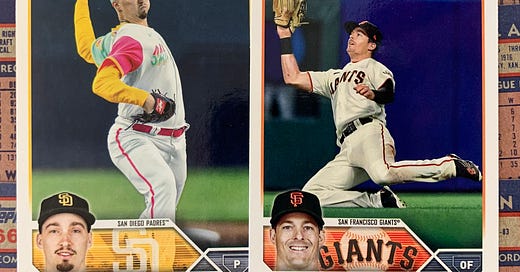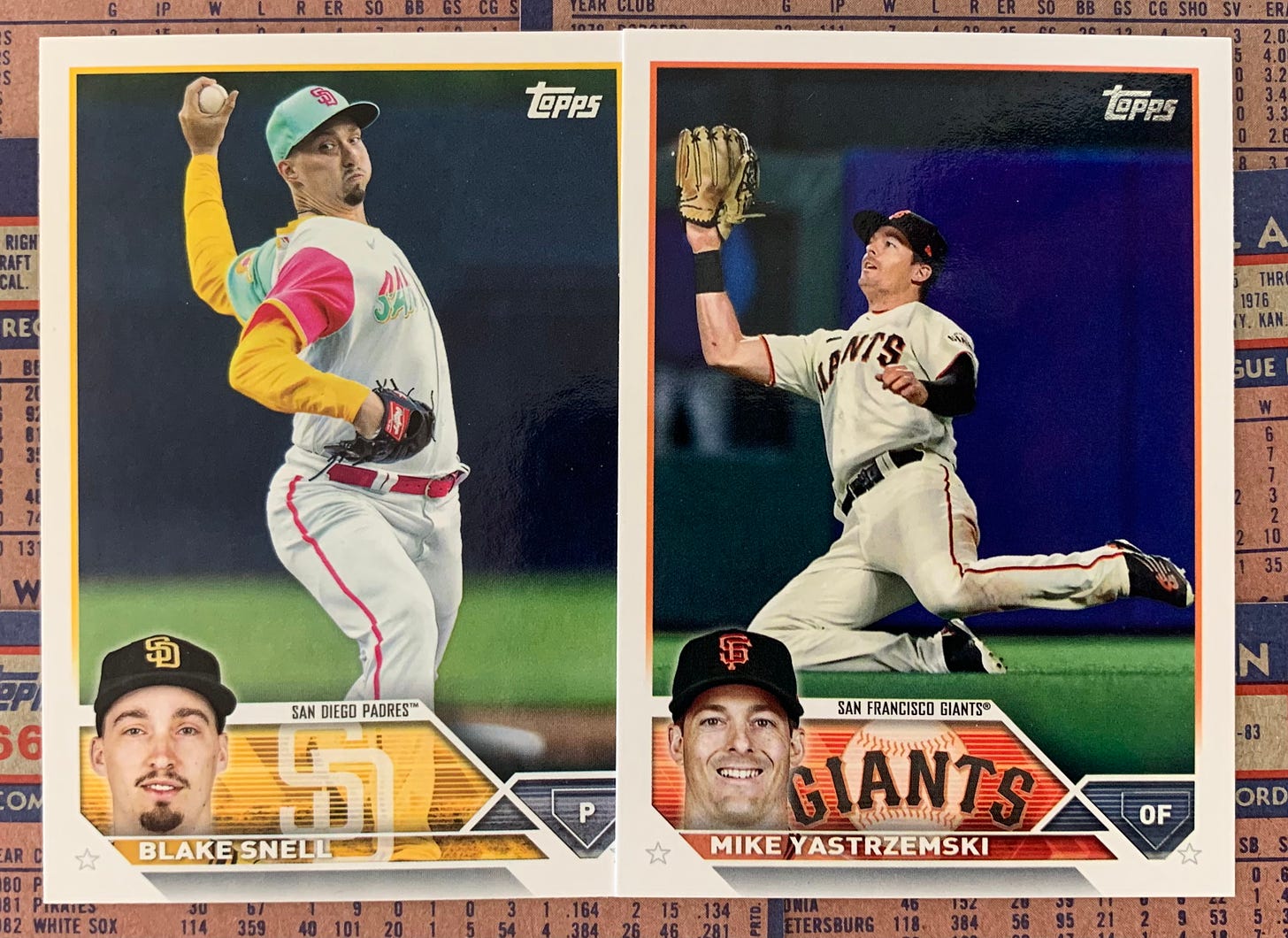Welcome to Warning Track Power, an independent newsletter of baseball stories and analysis grounded in front office and scouting experiences and the personalities encountered along the way.
I have a friend named Jeremy.
Many of you might have a friend named Jeremy, too. If you don’t have a friend named Jeremy, you’re still likely to have — or have had — a Jeremy in your life.
Since meeting this Jeremy during our freshman year of college, I’ve known him to be incredibly competitive. Did winning sometimes come in the way of friendships? Perhaps. Might some of his acquaintances believe that he shares a middle name with Bucky Dent and Aaron Boone? Most definitely.
I always thought he came from the Jimmy Connors school of competitiveness: “I hate to lose more than I like to win. I hate to see the happiness on their faces when they beat me!”
Still, there’s a satisfaction from winning — from exerting your abilities over an opponent — that also drives him, whether on the baseball field, golf course, ping pong table, boardroom, or in the abstract stadium of fantasy baseball.
(Let’s not lose sight of the fact that this Jeremy might also allow a friend to crash in his apartment for a few weeks — wow, did that become a few months already? — during a transitional point in his 20s.)
When it came to fantasy, which might have still been known as Rotisserie Baseball during our peak years, Jeremy’s teams foreshadowed changes to come in MLB. His rosters were furnished with players who had a flaw or two, but they also excelled at skills that were rewarded in fantasyland. These teams would have never won a World Series, but that didn’t stop them from running away with our league titles.
He drafted the types of closers that convinced a younger generation that anyone could pitch the ninth inning; pitchers who would accumulate 30+ saves over the course of a season by virtue of circumstance. Their ERAs weren’t always pretty, but the overall innings pitched were significantly fewer than those of starting pitchers and, therefore, relatively harmless. Their weaknesses could be tolerated.
There were also defensively challenged players who might “qualify” for 1B or 3B or RF based off of league rules but wouldn’t stand a chance in an actual everyday lineup. These players were a harbinger of what today’s game would look like — lots of strikeouts and lots of home runs.
Am I calling Jeremy the Billy Beane of our post-college fantasy league? No. Please, no. His approach, however, cast aside beauty in the name of winning.
His team of accumulators brought home the hardware. He espoused the belief that the rate categories — batting average, ERA, WHIP — couldn’t be undone by a few bad players who brought other skills to the table, while the accumulating stats — homers, RBIs, wins and saves — needed to be prioritized and cultivated.
Don’t you see? His teams had no soul. But, alas, they won. And nobody ever talked about bad mojo in his fantasy clubhouse.
I’ve been thinking of Jeremy’s fantasy baseball strategy all season as I’ve followed a number of teams, including the Padres.
Watching the Padres play the Giants yesterday (they play again tonight), I couldn’t help but consider two contrasting rosters that have ended up around the same place — out of the playoffs and scrambling to finish at .500. The Padres feature a pricy, star-laden and top-heavy roster; the Giants have a couple strong starting pitchers, a good closer, and 20+ role players and auditioning rookies. Very different journeys to the same destination.
If we pooled both rosters and held a fantasy draft of sorts, I think both revised teams would end up in a better place than each club currently finds itself. Maybe a NorCal/SoCal cooperative is what’s needed to challenge the Dodgers atop the NL West.
As the playoff picture comes into focus, it’s becoming clear that most of the winning teams are exactly that: teams! Collections of individuals with a variety of strengths and weaknesses deployed in an effort to achieve the greater good.
This season, a few baseball scouts and coaches have told me, unprompted, that they thought the game was “coming back.” What’s that mean?
The overall shifts in the game are not as simple as a pendulum that swings along one single plane. Radar guns and stopwatches are never coming back in full force just as horse-drawn carriages are no longer a preferred mode of transportation in modern cities. Steam happens.
There are, however, individual players who value some of the finer points of the game: bunting, stealing, bat control, honing their baserunning techniques and the routes they take on fly balls. These players have emphasized improving in those areas and carry their work into the game. For me, there’s no better place to observe this work than in extra innings. With a runner placed on second base to start every frame of bonus baseball, it only requires two productive outs to score a run. Teams reveal who they are — and who they want to be — in extras.
As the regular season ends, we separate fantasy from reality.
WTP offers free and paid subscriptions. Sign up now and never miss a word.




